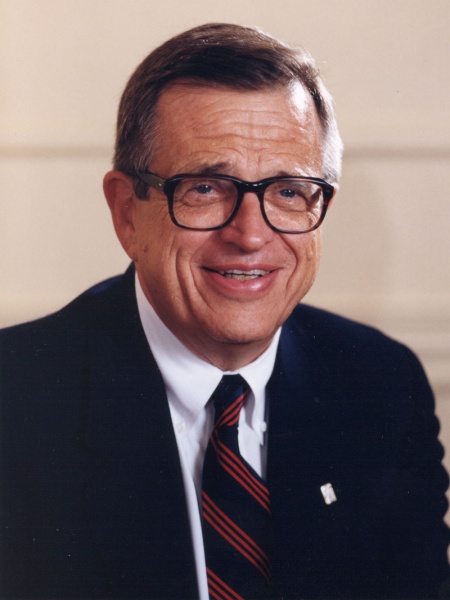Charles Colson has been a central figure in the evangelical Christian community since he shocked the Washington establishment in 1973 by revealing his new Christian commitment in the midst of the Watergate inquiry. In later years Colson would say that because he was known primarily as Nixon’s “Hatchet Man,” the declaration that “ ’I’ve been born again and given my life to Jesus Christ’ kept the political cartoonists of America clothed and fed for a solid month.” It also gave new visibility to the emerging movement of “born-again” Christians.
In 1974 Colson entered a plea of guilty to Watergate-related charges; although not implicated in the Watergate burglary, he voluntarily pleaded guilty to obstruction of justice in the Daniel Ellsberg Case, which was prosecuted in the acutely sensitive Watergate atmosphere. He entered Maxwell Federal Prison Camp in Alabama in 1974 as a new Christian and as the first member of the Nixon administration to be incarcerated for Watergate-related charges. He served seven months of a one- to three-year sentence.
Colson emerged from prison with a new mission: mobilizing the Christian church to minister to prisoners. This would become perhaps his greatest contribution to the church and the world. Although many local churches had ministered in nearby prisons for many years, most observers would affirm that Colson and Prison Fellowship truly put prison ministry on the agenda of the church in a substantial way.
Colson’s personal prison experience and his frequent ministry visits to prisons also developed in him new concerns about the efficacy of the American criminal justice system. His founding of Justice Fellowship in 1983 helped make Colson one of the nation’s most influential voices for criminal justice reform. His call for alternative punishments for non-violent offenders was often effective because Colson’s conservative credentials enabled him to line up conservative legislators in support of what had traditionally been seen as a liberal set of reforms.
That passion and sense of obligation to God’s calling and to his fellow inmates took Colson into prisons several times a year. He visited some 600 prisons in the U.S. and 40 other countries, and built a movement that at one time extended to more than 50,000 prison ministry volunteers. Often, particularly in the early days of Prison Fellowship, he was vocal in his disgust over the terrible conditions in the prisons and the need for more humane conditions and better access to religious programs.
Colson’s advocacy for prisoners’ religious rights took an additional form in the late 1990s when he and Justice Fellowship were at the forefront lobbying legislators to support the Religious Freedom Restoration Act and the Religious Land Use and Institutionalized Persons Act (RLUIPA), both nationally and state-by-state. Colson’s and Justice Fellowship’s work to bring an end to the national scourge and shame of prison rape culminated with the passage of the Prison Rape Elimination Act in 2003. Today, Justice Fellowship continues Colson’s commitment to advocating for reforms that respect the victims of crime, transform and reintegrate offenders, and make communities safer.
Kingdoms in Conflict, Colson’s best-selling 1987 book, was a directive to the Christian community on the proper relationships of church and state, and it positioned Colson as centrist evangelical voice for balanced Christian political activism. Although not as visible as others in the frontline battles, Colson provided counsel to many of the most evident activists and had a strong influence on Christian politicians who went to Washington in the 80s, 90s and into the new millennium.


